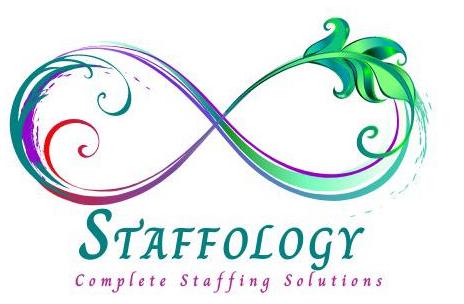As demand for nurses surges, partnering with the right healthcare nursing agency is key for hospitals and medical facilities looking to hire top talent quickly. But not all agencies are created equal. This guide will explore identifying and selecting the best agency for your healthcare staffing needs.
The Growing Importance of Healthcare Nursing Agency
Nursing shortages were a major issue even before COVID-19 increased workloads. Now, finding RNs and specialized nurses has become even more challenging. Healthcare Nursing Agency helps bridge talent gaps by providing contract nurses and permanent placements. Key benefits include:
- Faster Hiring: Agencies maintain large candidate pools, allowing faster fulfillment of open nursing roles.
- Flexible Staffing: Contract nurses can help manage seasonal census fluctuations or fill last-minute vacancies.
- Specialized Expertise: Agencies focus on specific skill sets from OR nurses to cardiac ICU nurses.
- Reduced Workload: Agencies handle administrative tasks like sourcing, screening, credentials verification, and onboarding.
- National Reach: Agencies source from a wider geographic area, useful for hard-to-fill rural openings.
With demand projected to grow, partnering strategically with the right agency makes hiring success more likely.
6 Key Services Provided by Healthcare Nursing Agency
Trustworthy healthcare nursing agencies offer much more than just candidate referrals. They provide holistic services spanning the entire recruiter-to-hire lifecycle:
1. Requirements Analysis
- Evaluating staffing needs and gaps
- Aligning on required skills, experience levels, and qualifications
- Developing customized recruitment strategy and approach
2. Candidate Sourcing and Promotion
- Advertising positions through diverse online/offline channels
- Leveraging existing candidate databases and pipelines
- Managing inbound recruitment marketing and social media
3. Screening and Selection
- Phone/video screening of potential candidates
- Conducting skills testing and assessments
- Performing background checks and credentials verification
- Scheduling and managing candidate interviews
4. Hiring and Onboarding
- Supporting hiring decision-making with analytics-driven insights
- Extending and negotiating nursing job offers
- Coordinating onboarding, orientation, and training
5. Ongoing Performance Management
- Providing continuous performance feedback
- Conducting periodic evaluations and reviews
- Cultivating ongoing education and development
6. Separation and Offboarding
- Managing voluntary and involuntary separations
- Conducting exit interviews and gathering feedback
- Providing job transition support
Top 5 Factors to Consider When Selecting an Agency
Not all nursing agencies are created equal. Here are key considerations when evaluating options:
1. Experience and Specialization
Look for deep expertise in the specific nurse specialty you need, from cardiac ICU to labor and delivery nurses. Avoid generalists.
2. Screening Rigor and Quality
Ask about their vetting process. Do they verify licensure? What assessments do they use? Robust screening improves long-term retention.
3. Geographic Reach
If you have hard-to-fill rural or regional openings, the agency should source from a national pool, not just locally.
4. Cultural Fit Testing
The agency should assess for alignment with your facility’s values and patient care philosophy. This promotes retention.
5. Reporting and Compliance
Confirm robust compliance procedures for timesheets, Joint Commission standards, HIPAA regulations, and HR/tax filings.
Questions to Ask Prospective Nursing Agencies
Here are key questions to ask when interviewing agencies:
- What is your nurse candidate sourcing strategy? Do they recruit actively or only work inbound leads? What sourcing channels, databases and referral networks do they use?
- How do you screen and evaluate candidates? Ask details about their vetting, interview and assessment processes to evaluate rigor.
- Can you provide case studies? Request examples of recent similar successful searches for niche nurse specialties.
- What is your placement success rate? Higher rates indicate ability to find quality matches that result in hires.
- How do you determine cultural fit? See if their process matches candidates to your facility’s values and care philosophy.
- What onboarding support do you provide? Look for robust onboarding that sets nurses up for success long-term.
- How do you support ongoing performance management? Do they partner on providing continuous feedback and development?
- What are your compliance procedures like? Rigorous compliance is necessary, from timesheets and TJC standards to HIPAA regulations.
Thoroughly vetting agencies upfront is crucial – ask tailored questions that illuminate their abilities specific to your needs.
Red Flags to Watch Out For
When evaluating nursing agencies, beware of these common red flags:
- Too good to be true “guarantees” of finding candidates or unrealistic timelines.
- Unsatisfactory references or an unwillingness to provide references.
- Inability to showcase specialization in your required nurse specialty.
- Lack of rigorous vetting, screening, or compliance procedures.
- Poor cultural fit testing or lack of appreciation for your facility’s care philosophy.
- Higher than industry standard recruiter turnover, indicating potential issues.
- Lack of local/regional presence if you have geographic hiring needs.
- Poor reputation among current nurses and healthcare networks.
- Avoid agencies exhibiting warning signs for problematic service or unethical practices.
Best Practices for Partnering With Nursing Agencies
Follow these tips for smooth ongoing agency partnerships:
Maintain frequent communication: Collaborate through consistent phone and email contact to share needs and provide feedback.
Set clear expectations upfront: Prevent misunderstandings by aligning on requirements, processes, timelines, and metrics at the outset. Put it in writing.
Provide insights on ideal candidates: Share details on must-have technical expertise, soft skills and cultural fit needs to find better matches.
Give feedback to improve: Provide constructive criticism so agencies can adjust their approach, source better candidates, and manage nurse performance issues.
Encourage innovation: Be open to pilot programs for new initiatives like diversity hiring partnerships, referral rewards, and nurse development programs.
Build relationships at all levels: Have nursing leadership engage directly with agency account representatives to drive a more strategic partnership.
Conclusion
Selecting the right healthcare nursing agency requires thorough vetting across many factors – domain expertise, rigorous screening, cultural matching, compliance, and more. By partnering strategically with an agency aligned to your needs and facility culture, you gain access to top nurse talent and the flexibility to meet patient demand – without bearing the entire administrative lifting.
We at Staffology take a holistic approach and help you mold and shape your workplace culture by eliminating complexity and providing a 360° solution for attracting, hiring, and retaining diverse candidates within our community of 200,000 professionals across our global networks.

